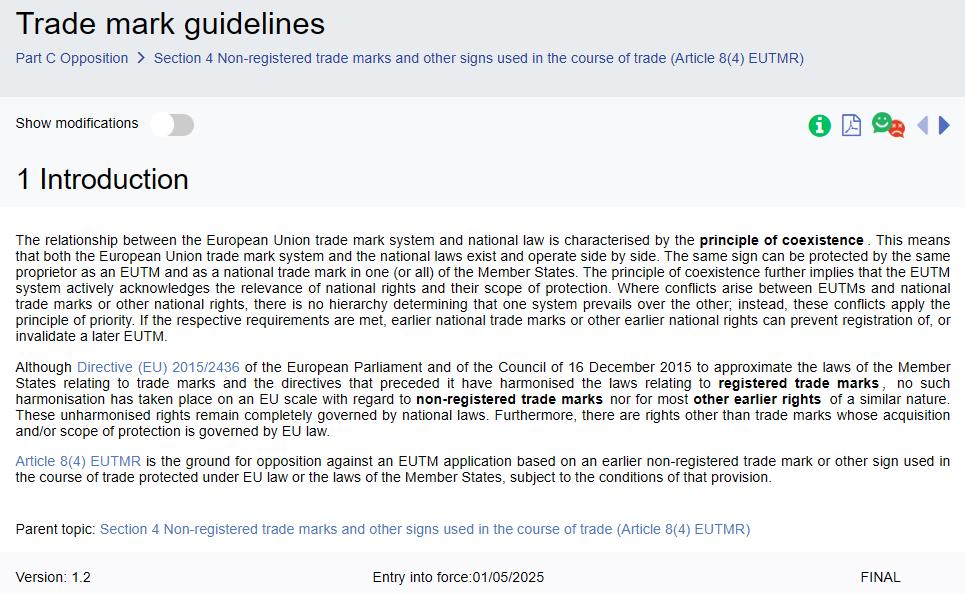We previously discussed the rampant issue of trademark squatting in the European Union and other European countries. Recently, a new type of squatting has emerged, where rights holders who have already registered an EU trademark still faced squatting in Germany, resulting in takedown complaints and ultimately forcing them to take the risky step of purchasing the trademark at a high cost. Sellers are puzzled: shouldn't an EU trademark registration automatically protect them in Germany? Why are they still encountering squatting?
Dual System: EU-Wide and National Trademark Systems Coexisting
The authority responsible for EU trademarks is the European Union Intellectual Property Office (EUIPO). An EU trademark registration automatically provides protection across all 27 member states. However, trademarks registered under the EU system do not directly conflict with or override national trademark systems. Each member state retains its own trademark registration and protection mechanisms, operating under a "dual system". This means it is possible for the same trademark to be registered by two or more different entities simultaneously at both the EUIPO and a national trademark office (such as Germany's).

That said, the coexistence of trademark registrations does not mean legal protection is granted to different entities for the same trademark. The legitimate rights holder can oppose or invalidate a later-filed German trademark application based on prior identical or similar EU trademark registrations/applications, prior use, or other valid grounds, thereby removing the conflicting trademark.
The "Trap" in Germany’s Trademark System: "Registration Before Opposition" Fosters Squatting
In addition to the coexistence of EU and national trademark systems, the specific characteristics of trademark examination procedures in European countries also create opportunities for squatting.
· Examination Based Only on "Absolute Grounds": During the substantive examination phase, German trademark offices only check whether a trademark violates prohibitive clauses (e.g., national flags, generic terms, lack of distinctiveness). They do not proactively search for similarities with existing trademarks. This means squatters can obtain registration certificates in just 4–6 months by submitting compliant materials.
· Post-Registration Opposition Period: Unlike the standard EU process of "publication before registration", Germany issues the registration certificate first, followed by a three-month opposition period. This publication period is often overlooked by legitimate rights holders or missed due to the short examination cycle.
· "First-to-File" Overrides "First-to-Use": Unlike the "first-to-use" principle in US trademark law, most European countries, including the UK, Germany, Italy, and the EU trademark system, follow the "first-to-file" principle. As long as the squatter files earlier, they can obtain legal recognition, even if they have never used the trademark. If the legitimate rights holder lacks an earlier registration, claiming prior rights based on earlier use of the same or a similar trademark requires substantial evidence, including scope of use, duration, and trademark recognition.
Loopholes in Platform Policies: Trademark Certificates as "Imperial Swords"
The review logic of e-commerce platforms like Amazon regarding infringement complaints has further enabled a "gray industry" of "bad-faith squatting + extortionate complaints".
· Certificates Override Facts: Platforms primarily rely on the trademark registration status during reviews. Factors such as the intent behind the registration or whether the registration involved misconduct are often excluded from consideration due to their specialized nature. As long as the complainant provides a valid trademark certificate, the reported listing is typically taken down, regardless of whether the trademark was squatted.
· High Bar for Appeals: Legitimate rights holders must submit evidence such as EU trademark registration proof, prior use of the product (e.g., sales records, packaging design), and proof of bad-faith squatting and complaints. The entire appeal process takes 1–2 months, and being targeted during peak seasons can result in significant losses.
Solutions: Building a "Moat" for German Trademarks
1. Strategy: "Dual Protection" with EU and National Trademarks
Register in Core Markets Separately: While registering an EU trademark, consider supplementing it with national trademark applications in key markets. The UK and Germany, as the top two e-commerce markets in Europe, have relatively short trademark examination cycles and should be prioritized to reduce the risk of squatting. For multiple countries, consider using the Madrid System for international registration to extend protection.
2. Monitoring: From "Reactive" to "Proactive" Defense
Monitor Trademark Activity in Real-Time: Engage professional agencies to monitor trademark database publications in various countries. Immediately oppose similar trademark applications during the opposition period.
Retain Usage Evidence: Sales records, advertising materials, customer reviews, and other proof of "prior use" before registration can strengthen your position during enforcement.
3. Enforcement: Seize the Golden Window
If faced with malicious complaints based on a squatted trademark, promptly submit an appeal to Amazon, clearly pointing out the bad faith behind the squatted trademark. If necessary, include a legal opinion from a local attorney to improve the chances of a successful appeal.
The "dual system" of EU and national trademark laws, combined with unique examination procedures in some countries and the review logic of e-commerce platforms, can leave even sellers with EU trademarks vulnerable to squatting and takedowns. Therefore, businesses should prioritize strategic trademark planning and adopt measures such as real-time monitoring and evidence retention to ensure efficient enforcement when facing squatting. For complex cases, seeking legal advice from professional agencies is highly recommended.

